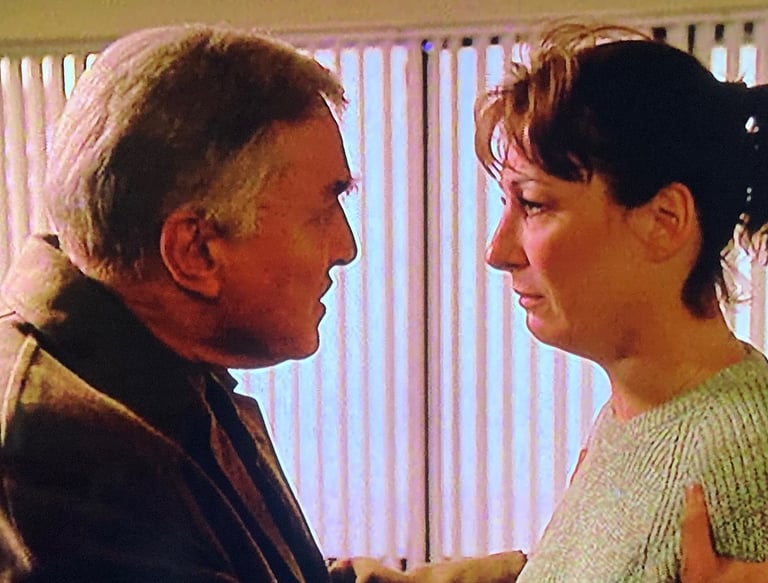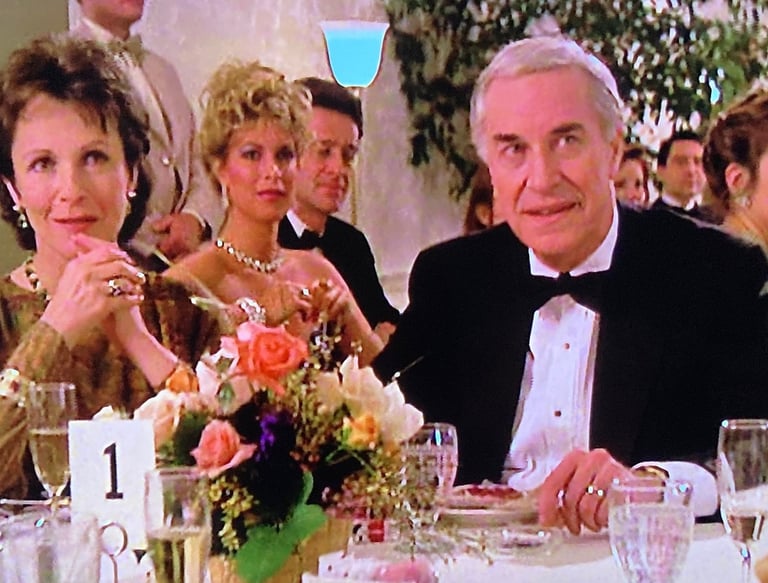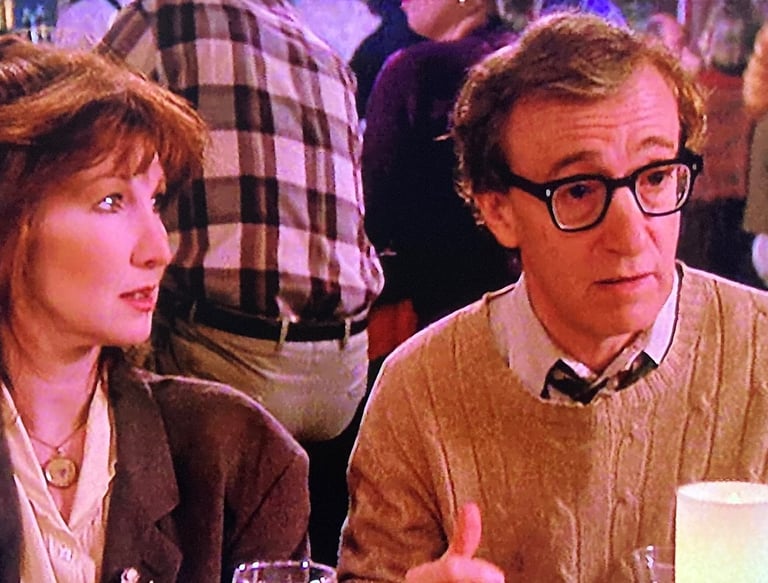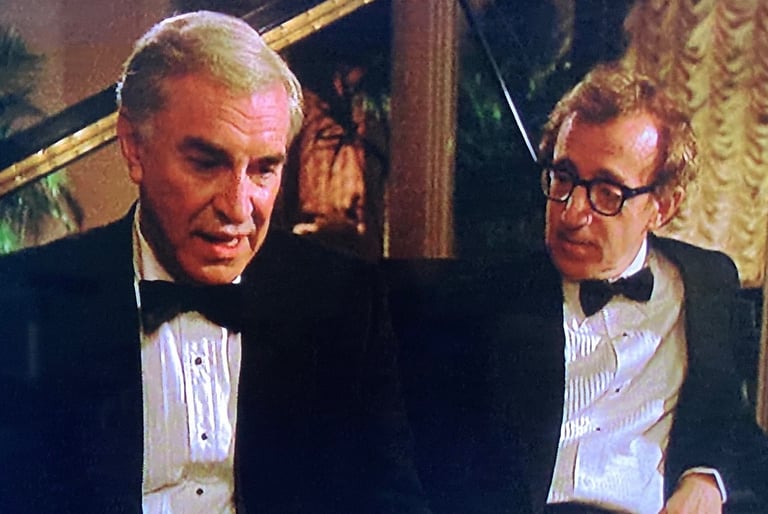
Crimes and Misdemeanors
- Review
“Crimes and Misdemeanors” is a title that belies a deeper purpose—the film isn’t a trek through the nuances of right and wrong, but rather an outright rebuking of their distinctions. It’s the antithesis of Revelation, a breaching into the Great Unmeaning. It’s the freedom afforded to those willing to deny an absent god.
This point is both shown and juxtaposed between two hopeless individuals: Cliff Stern (played by Woody Allen) is the idealistic one, a natural loser who is nevertheless obsessed with exploring life’s greater philosophical virtues. His counterpart is Judah Rosenthal (Martin Landau), a highly successful ophthalmologist; as a Realist of unbending relent, he believes the Material is all that matters. Is all there is. And yet, he’s the one hit with an unexpected spiritual crisis—his vindictive mistress is threatening to announce their two-year affair to the world, a move that will surely destroy his sterling reputation. With no easy way out, Judah begins considering the unthinkable. Murder.
The two rarely intersect with each other. Each is his own sphere--his own unique film, essentially--used to illustrate the moral ambiguities of human existence…the elusive features of duty and “Truth.” Indeed, Judah is an ethnic Jew who chooses to follow his own creed, his own Commandments, while Cliff, a documentarian, seeks subjects of metaphysical meaning despite his disdain to almost everyone around him. But it’s through Judah that the greatest question is raised: If there is no Truth, no Supreme Creator…is that cause for despair or celebration? Is Man cursed by the absence of God, or liberated?
Disappointingly, Cliff makes a poor counterpoint to Judah’s anti-theistic perspective. Lowly and mopey and hardly saintly, Cliff is content to chase his eccentric, idealistic pursuits at the cost of his family and social life, perpetually trapped in his own degrading self-orbit. His religiosity is minimal; his personal beliefs dubious. Believers hoping for a champion will not find their convictions displayed, let alone enforced, by him.
Or anywhere, really. Despite its dualistic themes, the movie is unmercifully nihilistic; the most “religious” character is a rabbi on the verge of permanent blindness—his reward, one supposes, for being one of the movie’s few truly pious disciples. Even Judah’s late father, despite being a rabbi devoted to the ancient texts, is portrayed more as a curmudgeon stubbornly clinging to outmoded precepts. If a viable alternative to atheism hides somewhere in the script, it’s not with Judaism, Christianity, or any theistic creed. Rather, it resides in a kind of apathetic agnosticism wherein a hint of hope might still, just so, cling to existence. Maybe.
It's a one-sided debate, in other words, with the case for God reduced to a strawman argument against the steelman anti-equation looming on the opposite end. But where the movie is unfair, it also succeeds, providing a stark, bitter reminder of life’s crueler realities. More often than not, it’s the weak and virtuous who suffer while the privileged spend their lives manicuring and hoarding their precious power and positions. If something threatens the esteemed stature of these elites, they have the means to make “corrections”—to “life hack” their circumstances—to preserve their dynasty and surrounding status. Kings, politicians, billionaires, Hollywood socialites…drenched in privilege, they have the means to coverup their sins and indiscretions, often at an innocent’s expense. And that’s exactly what happens here.
Judah makes a decision. Does it involve facing his mistakes and then working towards forgiveness…and at last, redemption? And more to the movie's overall point, does it matter? In a universe without God, forgiveness is a convenience one can’t always afford, a luxury no longer needed for a man capable of writing his own rules.
It's here where the film reveals its true genius, offering a tragedy without the tragedy...at least for those of a certain persuasion.
Ironic, or not?--D








The movie likes its ironic juxtapositions. Above, Judah tries to convince his mistress that their fling is over. Below, the also-married Cliff struggles to have an affair with his lovely associate.
Judah's marriage, as seen above, is "happy," at least in theory. Below, Cliff's marriage is on the verge of divorce.




If Cliff poorly represents the "Theistic" side of the aisle, Judah's father doesn't do much better. "If necessary, I will always choose God over truth," he states in a sort of faux-flashback/family debate. Indeed, if that's the good rabbi's best argument, it's no wonder Judah turned to materialism.
Both Judah and Cliff (left to right) finally meet at the end of the film like strangers from opposing worlds sharing a few notes. But really, are they that different?
Contact: lostnostalgiaproductions@gmail.com
Website: www.lostnostalgia.com
Like what we're doing? Please consider throwing us a dollar into our Patreon page's tip jar!


